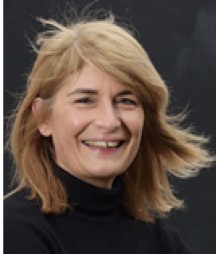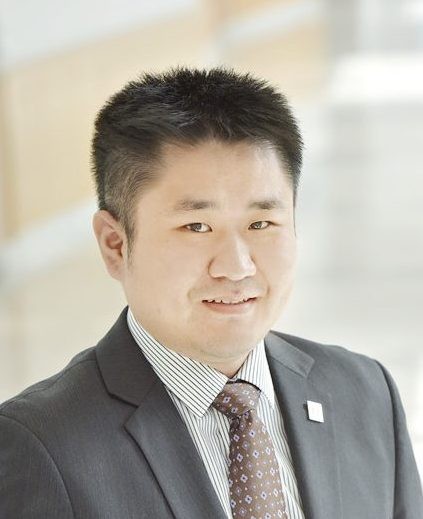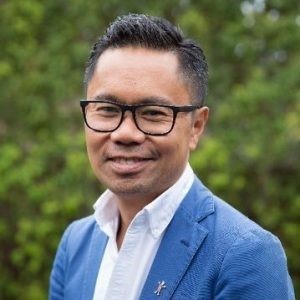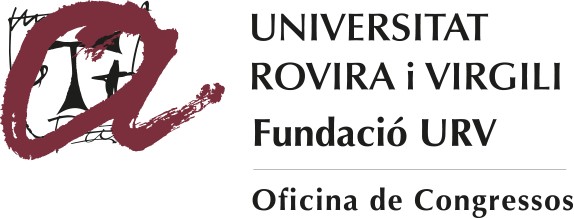Keynote speakers
Professor Monica Degen, Brunel University London, England.
Dr Monica Degen is a Reader in Cultural Sociology in the Political and Social Sciences Department at Brunel University London. Her research focuses on the politics of space with a particular interest in the ways sensory, temporal and emotional dimensions underpin urban culture and politics. Over the years she has been working on several international research projects with architects, local councils, museum curators and the general public to research the role of the senses in framing architectural practices, everyday life and culture in cities from Doha (Qatar) to Cologne, Barcelona and London. In 2016 she was awarded a British Academy Fellowship to research ‘Timescapes of Urban Change’. More recently she has been working on developing digital tools to capture the sense of place of cities and the ways in which urban environments are stratified by power relations, see www.sensorysmithfield.com & www.sensorycities.com. She has published her work extensive and is now working on a new book with Prof G.Rose (Oxford University) on digital cultures and urban experiences commissioned by Bloomsbury. Homepage: http://www.brunel.ac.uk/people/monica-degen
Presentation title: "A Dramatic Urban Aesthetic: How digital mediatization is reconfiguring urban experience"
Abstract
In this presentation I offer an analysis of the aesthetic politics of contemporary urban life. I explore how Instagram is reconfiguring urban space, branding and experiences. The sharing of images of urban environments on social media has become pervasive: “rapidly changing how people experience cities, and even how cities work” (Rosenblatt 2018 quoted in Leszczynski 2020:190). But, as I argue in this talk, social media does more than this and has additionally become a crucial feature for anticipatory urbanism and reshaping the sense of place. Focusing on the redevelopment of the Smithfield Market Area into the ‘Culture Mile’ in the Square Mile of London and analysing how placemaking in the age of social media operates as a distributed practice where destination marketing organisations have to work with users posting on platforms like Instagram, I identify the emergence of a new ‘dramatic urban aesthetic’. I suggest that mediations of digital technologies are deeply reshaping the aesthetic organisation of cities, redrawing power relations, with important implications for how they are built, represented and lived. See: Degen, M. & G. Rose (2021) New Urban Aesthetic: How Digital Culture Mediates our Experience of the City, Bloomsbury, forthcoming.
Professor Yang Yang, Temple University, United States.
Yang Yang is currently a tenured associate professor in the Department of Tourism and Hospitality Management at Temple University (EEUU). He’s a Ph.D. in Geography, Master of Statistics, and M.A in Economics from University of Florida.
His research interests lie in tourism demand analysis, regional tourism growth, as well as hotel financial and real estate analysis. With a solid multi-disciplinary education background, he is able to thoroughly investigate research questions in the tourism and hospitality industry and offer unique insights and perspectives. He has published academic papers in top-tier tourism and hospitality journals. At the same time, he has accumulated abundant industrial experience from various consulting projects. He recently created a Covid19 tourism index: www.covid19tourism.com
Presentation title: “Monitoring and analyzing the impact of COVID-19 on global tourism: a COVID19tourism index”
Abstract
The COVID-19 pandemic has drastically altered the global outlook on health and economics. This presentation describes the development and calibration of an analytical tool named the “COVID19tourism index” to monitor the pandemic’s tourism effects. As a powerful numerical and visual tool, the index provides important information related to potential travel and tourism recovery at the global, regional, and country levels. Compared to a benchmark of “normal” levels, the index offers insight into the tourism industry’s recovery process along with the pandemic’s impacts on numerous aspects of tourism. It covers a variety of countries, and daily data provide a granular perspective on the curve of tourism recovery. This curve can help tourism stakeholders better prepare for and address the consequences of pandemics. Based on a web-GIS dashboard developed, several parties (e.g., travel and tourism practitioners, researchers, travelers, and government entities) can search for and visualize up-to-date and retrospective data.
Professor Joseph M. Cheer, Wakayama University, Japan, and Monash University, Australia
Dr. Joseph is Professor at Center for Tourism Research, Wakayama University, Japan and Adjunct Research Fellow, Faculty of Arts, Monash University, Australia. He is Co Editor-in-Chief of Tourism Geographies and editorial board member of numerous journals and has guest edited special issues in Journal of Sustainable Tourism, Tourism Management Perspectives, Tourism Planning & Development, SHIMA and Sustainability, among others. He holds honorary positions on boards/committees including; International Geographical Union (IGU), Commission on Tourism; Critical Tourism Studies Asia-Pacific (CTSAP); Association of American Geographers Recreation, Tourism & Sport (AAG-RTS) Group; and Council for Australasian Tourism & Hospitality Education (CAUTHE)(Tourism Geographies & Tourism Economics Track). His recent books include: (1) Overtourism: Excesses, Discontents and Measures in Travel and Tourism with Claudio Milano & Marina Novelli; Modern Day Slavery & Orphanage Tourism with Leigh Mathews, Katherine van Doore & Karen Flanagan; Tourism Resilience & Sustainability: Adapting to social, political and economic change and Tourism Resilience and Environmental Change: Definitions and Frameworks (both with Alan A. Lew).
* An early working version of this research was presented at Iso-CHATS Collaborative Hospitality and Tourism Seminars organised by the University of Tasmania and University of Newcastle (both in Australia) on 12 June 2020.
Presentation title: Social Licence and Tourism Spatialities: Heuristics, Praxis and Policy
Abstract
Amidst enduring discourses, a noticeable absence in the myriad of conversation threads concerning tourism is the notion of social licence - more specifically, ‘social licence to operate’. The concept has been applied extensively to enquiries into extractive industries including mining, forestry, fisheries and agriculture. Owen and Kemp (2013) describe social licence as premised on the idea of informal or ‘tacit’ licensing that signals the presence or absence of a critical mass of public consent, which may range from reluctant acceptance to a relationship based on high levels of trust. Apropos, I apply the term to tourism destination spatialities and enquire into how social licence might be employed as a heuristic to guide praxis and policy development. My express intentions are to propose and advocate for the integration of social licence thinking into the tourism spatialities discourse. Allied to social licence is the praxis oriented social licence to operate (SLO) – a compact that underlines rules of engagement negotiated between instigators of development, usually public and/or private institutions, and relevant stakeholders with an interest in the resultant outcomes. The twin issues of social and ecological resilience and the protection of the commons and communities from irreversible and adverse outcomes is as important in tourism as it is in extractive endeavours. Yet, for all of the discussion about the impacts of tourism and measures to address adverse outcomes, the employment of social licence in policy and planning frameworks is largely muted. I argue that elevating social licence to operate (SLO) as a necessary tourism policy and planning heuristic can help underline the prosperity and sustainability of people and place.
Professor Dejan Križaj, University of Primorska, Slovenia
Dejan Križaj’s research and publications focus on R&D in tourism and the promotion and measurement of tourism innovation. He is the co-founder of AIRTH – Alliance for Innovators and Researchers in Tourism and Hospitality. Since 2006, he is the chairman of the Slovenian National Tourism Innovation Awards Commission on behalf of Slovenian Tourist Board, and Ministry of Economic Development and Technology. His projects and innovation efforts have been internationally recognized by the UNWTO, OECD and EU. Teaching e-tourism and tourism innovation courses at undergraduate and graduate levels. He is co-editor of UP FTS’sAcademicaTuristica – Tourism and Innovation Journal.
Presentation title: "Tourism 4.0: how research support industry green transitions"
Abstract
Tourism innovation follows and dictates global trends, including the ongoing and pervasive debate on sustainability. The reality of Covid 19 has weakened the tourism sector and has re-questioned and sharpened its sustainable "talk and walk". Several initiatives focus on (smart) technological aspects of sustainable innovation, including the first national and later transnational initiative Tourism 4.0, which started in Slovenia in 2018. The initiative focuses on the stakeholders of smart tourism ecosystems based on the principles of Industry 4.0, with special emphasis on local communities. Like everything else, the initiative has been confronted with the new pandemic reality, which it has been able to overcome by reorienting existing projects and by new innovative approaches, again with a special focus on local stakeholders. By analysing these projects and their dynamics, the presentation focuses on the social impact of research in the field of tourism & mobilities and on the sustainable transitions triggered by crisis and innovation.









